Breaking Barriers and Building Dreams : The Remarkable Journey of Kudumbashree's Women Warriors
This Women’s Day, CDI would like to celebrate and acknowledge the contribution to community& collaboration amongst women in the Kudumbashree network.
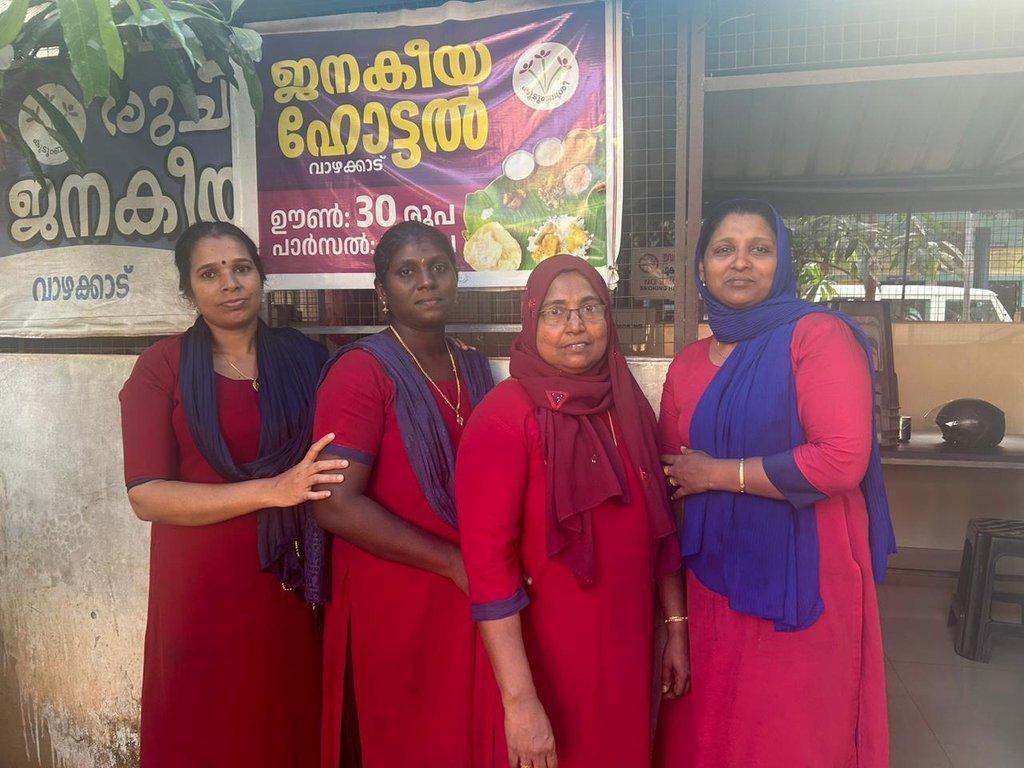
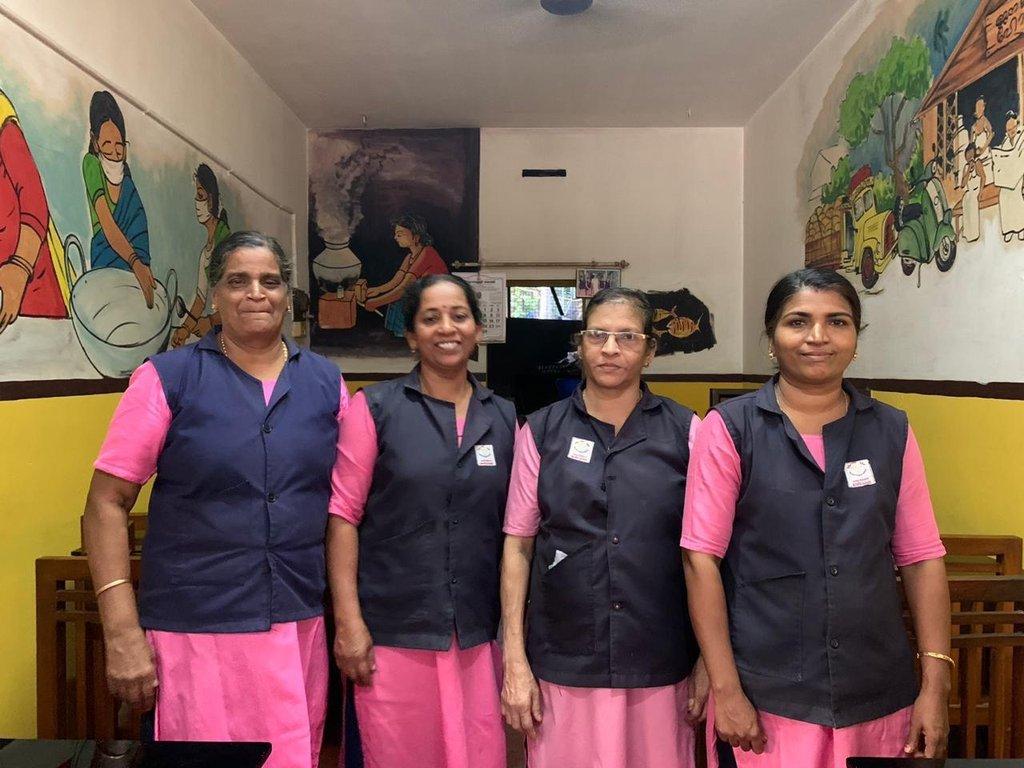
March 8th is officially regarded as Women’s Day, the journey was started on March 8, 1857, in New York City when female textile workers staged protests against discriminatory labour laws and gender inequality. It was one of the earliest coordinated strikes by female workers which demanded reduced workweek and fair pay. Additionally, on March 8, 1908, female needleworkers staged a protest in the Lower East Side of New York City against the circumstances of child labour and sweatshops, calling attention towards women's suffrage.
These movements marked the International Women's Day which was first celebrated on March 8 of each year starting in 1910. Since then the Women’s day globally recognised on March 8th has evolved to drive towards achieving gender equality and signify the need to address gender bias. The day celebrates women and aims to evoke dialogue around women's equal rights, violence and abuse against women, reproductive rights and so forth.
India’s movements for women empowerment, go back to the pre-independence era. Noted personalities like Jyoti Rao Phule, Savitribai Phule, Swami Vivekananda, Raja Ram Mohan Roy, Acharya Vinobha Bhave, and Ishwar Chandra Vidyasagar, among others, worked tirelessly to ensure education, equal rights and dignity for women in India and outlawed abhorrent customs like child marriage and sati. One of the earliest political organisations in India, the Indian National Congress, came out in 1917 to call for women's political rights. Then after, the Indian constitution which came into effect in 1950 wherein the dignity of women's empowerment as equal citizens was ensured through Article 14 that guarantees equality, Article 15(1) that forbids gender discrimination, and Article 15(3) gives the state the authority to implement affirmative action measures that benefit women.
Policies for Women in India
As we know that The Preamble, Fundamental Rights, Fundamental Duties, and Directive Principles of the Indian Constitution all uphold the goal of gender equality. In addition to granting women equality, the Constitution gives the state the authority to enact laws for affirmative action in regards to gender equality and women empowerment. Our laws, development strategies, plans, and programmes have all targeted women's advancement in various fields within the framework of a democratic society. The Fifth Five Year Plan (1974–1978) marked a significant change in the focus of attention on women's issues from welfare to development. In 1990, an Act of Parliament established the National Commission for Women to protect women's legal rights and privileges. The Indian Constitution's 73rd and 74th Amendments (1993) established the provision for women to be allocated seats in Panchayats and Municipalities, establishing a solid basis for their involvement and representation at the governance level.
Apart from this a variety of initiatives and activities are taken up by the Indian Government for enabling various sections of women and ensuring their social, educational, economic and political empowerment, Few of such schemes are National Social Assistance Programme (NSAP), Beti Bachao Beti Padhao (BBBP), Pradhan Mantri Awas Yojana (Urban & Rural), Pradhan Mantri Vyay Vandana Yojana (PMVVY), and Scheme for Adolescent Girls (SAG) support women and girls in achieving social security. Additionally the National Skill Development Policy is established to improve economic productivity by increasing women's involvement through inclusive skill development.
Kudumbashree and Women's Empowerment in Kerala
To mark the celebration of women’s day this year, it shall be incomplete without mentioning the Kerala Kudumbashree initiative and specifically the women of Kudumbashree, who have impacted communities beyond. Today, Kudumbashree is working as a consultant on women's empowerment in thirteen other states. Its main contribution is to the state's declining rates of poverty. This is supported by a number of surveys and research, including the most recent Multidimensional Poverty Index published by NITI Aayog.
At its central focus, Kudumbashree is an organisation for the upliftment of women. It originated in Kerala State asan institutional structure that collaborated closely with local governments, and it was recognised in the midst of State government's decentralisation of powers to local government organisations. Kudumbashree is the space for Neighbourhood Groups (NHG) and was distinct from the Self-Help Group movement that was popularised worldwide in the 1980s and 1990s, having its own history and philosophy to eradicate poverty. Its efforts were concentrated on ending poverty since it is believed to enable women's advancement. Furthermore, Kudumbashree also established auxiliary groups in 2021 to support the social and economic empowerment of women between the ages of 18 and 40, as well as to provide educated women with opportunities to generate income and a platform to make social interventions and support the financial development of their families.
Over time, Kudumbashree Community Network developed into a significant actor in development, closely collaborating with local administrations. This contributed to the Kudumbashree women's upliftment and in the process, many leaders emerged taking on political and civil leadership in the society. The impact of Kudumbashree has been fundamental in the state. Along with serving its mission, it is also bringing development and relief in the state over the past 25 years.
When the worst flood in a century flooded most of Kerala in 2018, Kudumbashree donated the Chief Minister’s distress relief fund an amount of Rs. 7 crore. The majority of Kudumbashree workers were victims of the flood, which ruined livelihoods, houses, and means of subsistence. However, the Kudumbashree women were willing to give as much as they could to the distress relief fund in order to support people who suffered more than them, despite all those unsettling considerations.
Furthermore, one of the Kudumbashree's remarkable achievement during the lockdown is its "Janakeeya Hotels" throughout the state to provide food to the underprivileged persons at a reasonable price. This project and its ingenious distribution helped people to sustain food during quarantine. There are now 800+ Janakeeya Hotels in Kudumbasree that serve meals for all strata of population. Thus, it can be asserted that ordinary women from low-income households were transformed by the collective into catalysts for change and healing after catastrophic events like the pandemic and flood.
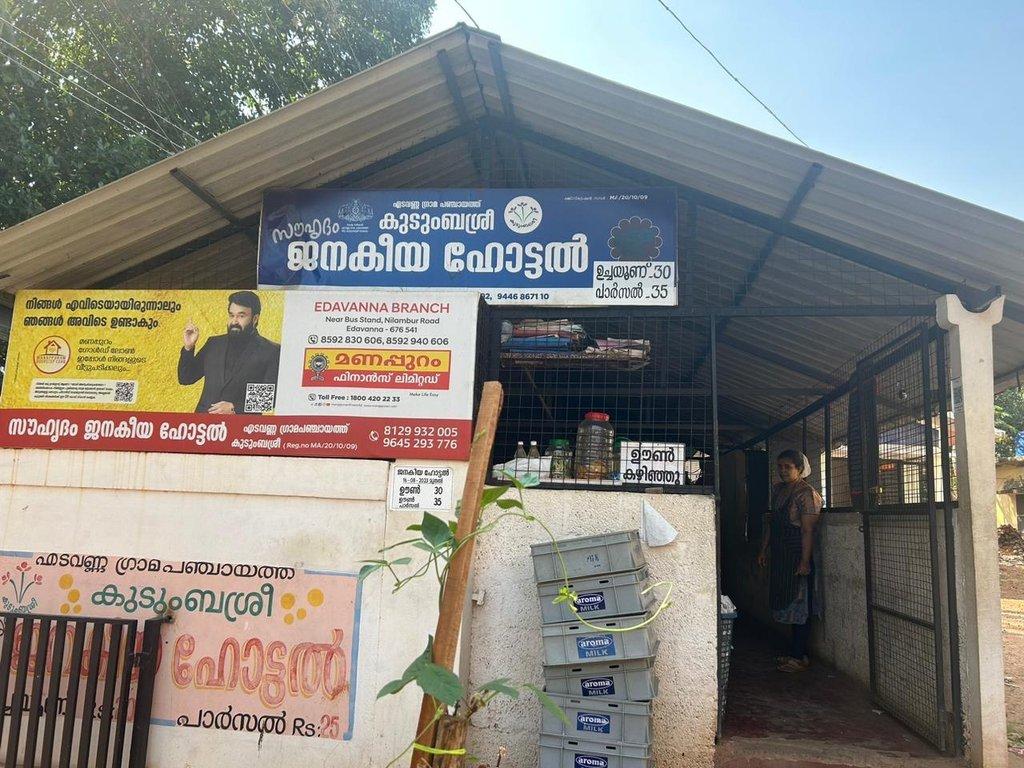
Another initiative within Kudumbashree is that the women in Neighbourhood Groups (NHGs) engage in a participatory education initiative called the Gender Self-Learning initiative (GSLP), which was launched in 2007. Through this initiative, women discuss gender and how it manifests in their daily lives. The focus is on the process, which aids in the women's development of a deep grasp of gender's ubiquitous expressions and a collective consciousness about gender. The functioning of Kudumbashree has been holisitic to foster change which has impacted women and the communities beyond in the state of Kerala.
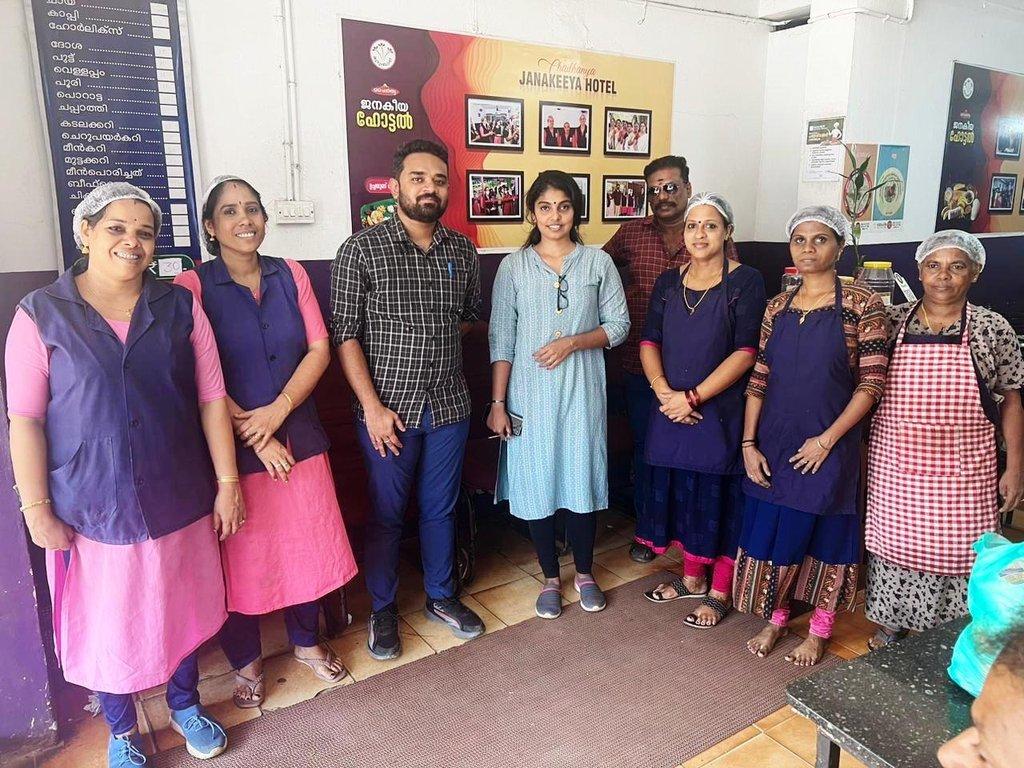
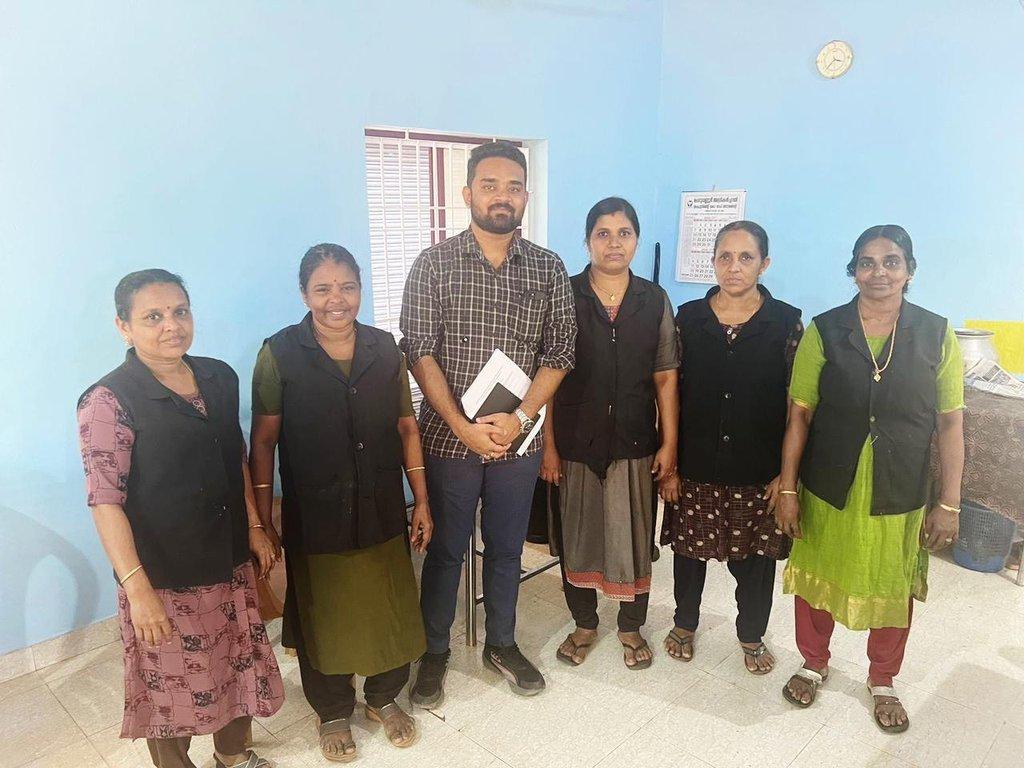
Women of Janakeeya hotels with the Co-founder of Centre for Development Initiatives
This comprehensive impact of Kudumbashree has taken shape with the contribution of women warriors, on the women’s day, the country and Center for Development Initiatives shall extend a heartfelt appreciation & gratitude to these women for day in and out, for past, present and the future.
No comments yet. Login to start a new discussion Start a new discussion